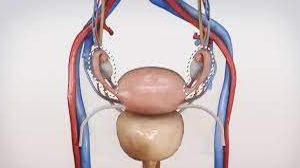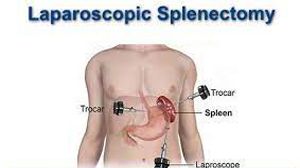Contemporary Strategies in Fecal Incontinence Management: A Comprehensive Overview
Add to
Share
922 views
Report
1 year ago
Description
Introduction Fecal incontinence (FI), commonly referred to as the inability to control bowel movements, is a distressing and socially debilitating condition that significantly impacts the quality of life for those affected. With an aging population and an increased focus on addressing gastrointestinal disorders, the management of FI has witnessed remarkable advancements in recent years. This comprehensive review delves into the cutting-edge approaches and therapies that are shaping the landscape of fecal incontinence management. Understanding Fecal Incontinence Before delving into the current management strategies, it's crucial to understand the underlying causes of fecal incontinence. FI can result from a variety of factors, including muscle or nerve damage, pelvic floor dysfunction, neurological disorders, and gastrointestinal diseases. The severity of FI varies widely, from occasional leakage to complete loss of bowel control. Diagnostic Innovations Accurate diagnosis is the foundation of effective treatment. Recent advancements in diagnostic technologies have enhanced clinicians' ability to assess the causes and severity of FI. High-resolution anorectal manometry, magnetic resonance imaging (MRI), and endoanal ultrasound are some of the cutting-edge tools that provide detailed insights into anorectal anatomy and function, aiding in personalized treatment planning. Conservative Management Approaches Conservative management strategies remain the first-line approach for many individuals with mild to moderate FI. These approaches include dietary modifications, fiber supplementation, bowel habit training, and biofeedback therapy. Advances in digital health have led to the development of smartphone apps and wearable devices that help patients track dietary habits, monitor symptoms, and receive real-time feedback, fostering self-management and adherence to treatment plans. Pharmacological Interventions In cases where conservative measures prove insufficient, pharmacological interventions offer a range of options. New medications, such as selective serotonin reuptake inhibitors (SSRIs), anti-diarrheal agents, and stool bulking agents, aim to regulate bowel movements and improve sphincter control. Additionally, research is ongoing in the development of novel medications that target specific pathways involved in anorectal function. Surgical Innovations For individuals with refractory FI, surgical interventions have evolved significantly. From traditional sphincter repair to minimally invasive procedures, advancements have led to reduced morbidity and improved outcomes. Techniques like sacral nerve stimulation (SNS) and anterior sphincteroplasty have gained prominence for their effectiveness in restoring continence. Emerging Therapies In recent years, several innovative therapies have emerged as promising alternatives for FI management. Injectable bulking agents that augment the anal canal's structural support are being explored for their potential in improving sphincter function. Stem cell therapies hold the promise of regenerating damaged tissue, while neuromodulation techniques are being refined to provide more targeted and personalized treatment. Multidisciplinary Approaches Recognizing the complex nature of FI, a multidisciplinary approach is gaining traction. Collaboration between gastroenterologists, colorectal surgeons, pelvic floor specialists, physical therapists, and psychologists ensures comprehensive care addressing both the physical and psychological aspects of FI. Patient-Centered Care and Rehabilitation An integral aspect of modern fecal incontinence management is the shift towards patient-centered care and comprehensive rehabilitation. Recognizing the psychological toll of FI, psychological interventions, such as cognitive-behavioral therapy (CBT) and mindfulness-based techniques, are being integrated into treatment plans. These approaches address the emotional impact of FI, reduce anxiety, and enhance coping mechanisms, leading to better overall outcomes. Bioengineering and Prosthetics Bioengineering advancements are paving the way for the development of novel prosthetic devices and implants designed to restore continence. Artificial sphincters, anal plugs, and other implantable technologies are being refined to provide anatomical support and promote sphincter function. These innovations hold the potential to significantly improve the quality of life for individuals with severe FI. Telemedicine and Remote Monitoring The digital age has brought about transformative changes in healthcare delivery, and fecal incontinence management is no exception. Telemedicine platforms enable remote consultations, follow-up appointments, and real-time monitoring of patients' progress. This not only enhances accessibility to specialized care but also facilitates ongoing assessment and adjustments to treatment plans. Precision Medicine Advances in genetics and molecular biology have opened the door to precision medicine approaches in fecal incontinence management. Genetic profiling and biomarker analysis can provide insights into an individual's susceptibility to FI and guide tailored treatment strategies. This personalized approach aims to optimize therapeutic outcomes and minimize adverse effects. Long-Term Outcomes and Quality of Life With the evolving landscape of FI management, researchers are placing increasing emphasis on long-term outcomes and quality of life assessments. Patient-reported outcome measures (PROMs) and quality of life questionnaires are being utilized to gauge treatment efficacy beyond clinical parameters. This holistic evaluation helps healthcare providers better understand the impact of interventions on patients' daily lives. Global Health Implications The advancements in fecal incontinence management have not only transformed care in developed countries but also hold the potential to address global health disparities. Innovations in low-resource settings, cost-effective treatment modalities, and capacity-building initiatives are vital to ensuring equitable access to FI management worldwide. Ethical Considerations and Patient Autonomy As the field of FI management continues to evolve, ethical considerations surrounding treatment choices, informed consent, and patient autonomy become increasingly important. Open and honest communication between healthcare providers and patients, along with shared decision-making, ensures that treatment plans align with patients' values and preferences. Conclusion The comprehensive review of current approaches and therapies for fecal incontinence management underscores the dynamic nature of this field. From advanced diagnostics and surgical innovations to patient-centered care, telemedicine, and precision medicine, the array of options available reflects a multidimensional approach to tackling this challenging condition. As research and innovation persist, the trajectory of fecal incontinence management promises further breakthroughs, improved outcomes, and enhanced quality of life for individuals living with FI.
Similar Videos






